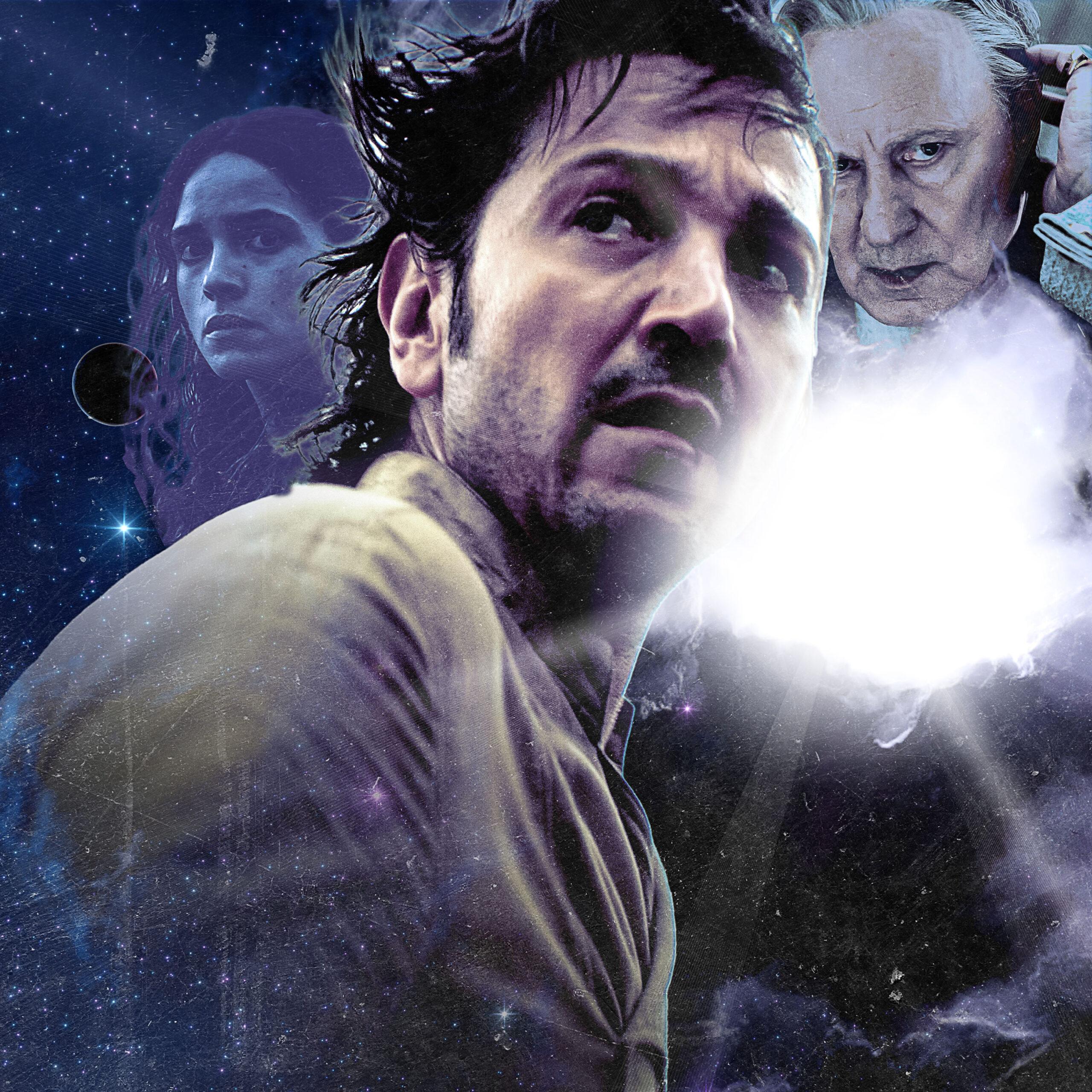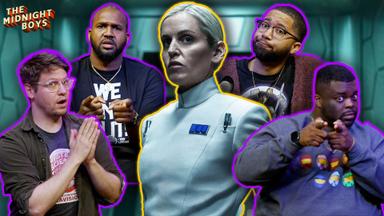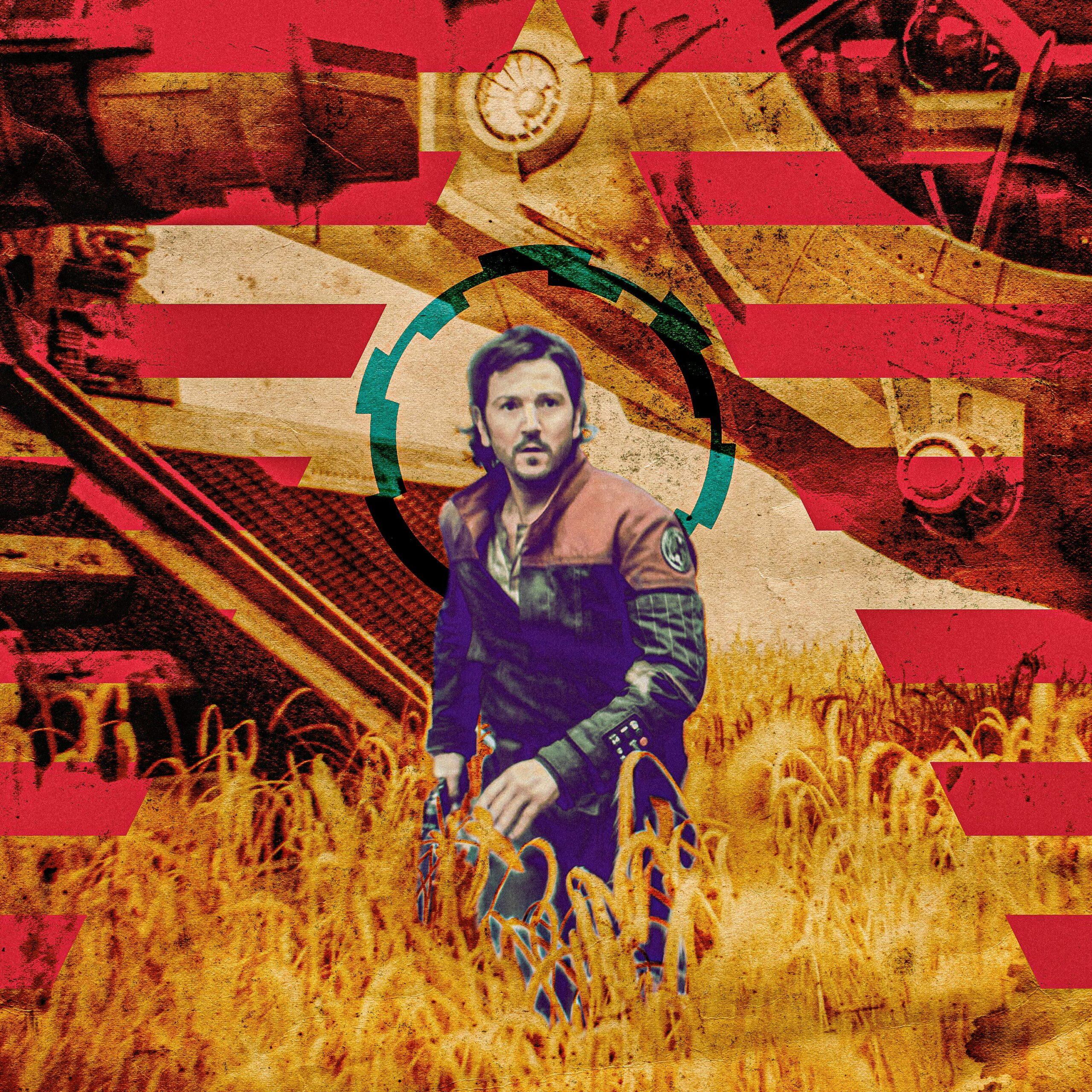
In The Empire Strikes Back, the eponymous Empire puts Luke Skywalker in a bind. Should the young Jedi bide his time, build his skills, and wait for the perfect moment to strike? Or should he cut his training short and try to help his friends before he’s fully ready, even though he might well be walking into a trap?
“If you leave now, help them you could,” Yoda counsels his pupil. “But you would destroy all for which they have fought and suffered.”
It’s a hard decision. One moral of the movie is that just because you feel you could take on the whole Empire yourself, that doesn’t mean you’re ready for that fight. However, waiting isn’t always the answer, either: Sometimes the enemy forces you into action. The consequences of going on the offensive are difficult to forecast: Even Yoda would have to concede that Luke didn’t destroy anything by leaving Dagobah for Bespin. The future, like the Los Angeles Rams, is always in motion.
Three years before the Battle of Yavin, when the fourth through sixth episodes of Andor’s second season are set, Luke is still busy bull's-eye-ing womp rats, taking trips to Tosche Station, and escaping the planet that’s farthest from the bright center of the universe. But that “bright center” is more of a dark heart, and the revolutionaries—if they are revolutionaries—who are starting the fight that Luke will finish are facing the same dilemmas he’ll deal with down the road.
As last week’s TV trilogy conveyed, the nascent rebellion—Cassian included—has shifted into attack mode. On this week’s installments, which were written by Beau Willimon and directed by Ariel Kleiman, the rebels wrestle with how aggressive to get. “We’re in a war,” Cassian says. “Not everybody knows it yet, but it’s happening.” Yet on Andor, it’s the protégé who’s hesitating and the mentor who’s itching and burning for a fight—and for a rhydonium-esque explosion. “People die rushing,” Cassian tells Enza, the daughter of Carro Rylanz, leader of the French Resistance–coded Ghorman Front. “You have no idea who I am. You need to be more careful.” She shoots back, “It’s hard to be patient when your world is falling apart.”
True enough, but acting rashly could hasten her world’s destruction. Cassian’s caution is justified: The Empire has laid a trap on Ghorman, much like Darth Vader did at Cloud City, and by targeting a transport, the Ghorman Front is playing right into Dedra Meero’s hands. “They’re inexperienced, but very eager,” Syril says to Major Partagaz, referring to the Front. “How often those attributes align,” the major muses, so dryly that Syril doesn’t realize that Partagaz is really referring to him.
Luthen isn’t inexperienced, but he’s eager to get Ghorman in play and “let down” by Cassian’s snap judgment that the Ghormans are impatient. “They’re finally wanting to do something, and you tell them to be careful,” Luthen scolds. As ISB mole Lonni says to Luthen in a separate conversation, “You used to tell me to wait.” Luthen responds, “Those days are gone.”
Luthen, of course, doesn’t care about the risks to a rebel cell he hasn’t met in person. If Ghorman goes up in flames, it will “burn very brightly”—and that light could draw other freedom fighters. As Luthen proclaimed in his memorable monologue last season, he’s already burned his decency and his life; what does it matter if Ghorman gets caught in the conflagration? On both sides of this conflict, some men just want to watch those suits and spiders burn.
If Ghorman ignites, it won't be because of a controlled burn. Luthen criticizes Cassian’s “lack of control” in visiting his gallery—but control was a quality that the reckless Luke had to learn. “I’m thinking like a soldier,” Cassian says, which was clear in last week’s episodes. Luthen, who later questions Cassian’s complete commitment to the cause, fires back, “Think like a leader.” That’s the next step in Andor’s evolution into the man we met in Rogue One. “We are not who we were when we started,” says Luthen when Cassian protests, “We are not droids.” But Cassian isn’t quite who he’ll be when he finishes, either.
All’s fair in love and war, and for Cassian, the plight of Bix blends both. “You didn’t kill that boy because we’re at war,” Bix accuses. “You killed him because he saw my face.” Andor doesn’t see the difference. It’s not clear whether Cassian is acting as a lover, a fighter, or both at the end of Episode 6, when he and Bix—seemingly acting on their own—infiltrate Dr. Gorst’s new HQ and give him a (presumably) fatal taste of his own torture. But he can’t be accused of putting patience or caution first. “If we do not stand together, we will be crushed,” an increasingly impotent Mon Mothma argues in Episode 4. Yet, as Gorst says in Bix’s nightmare, “Everyone has their own rebellion. Right?” This perilous but successful assassination, which could cause a crackdown as the raid on Aldhani did, is an act of rebellion against Luthen almost as much as it is against Gorst.
Bix is quietly a radical character by Star Wars standards. It shouldn’t be shocking that there’s sex crime in the Star Wars galaxy, or that the Empire would perpetrate it, but it’s never been depicted as starkly as it was last week. (Princess Leia was enslaved and forced to sit nearly naked by Jabba’s side before, like Bix, turning the tables on her tormentor—but Leia’s scanty attire was intended to titillate the audience more than it was to unsettle it.) And sure, it’s not news that there are drugs in a world where one can easily buy death sticks—but we don’t normally see their effects. And unlike Elan (sigh) Sleazebaggano, Bix can’t change her life with the wave of a hand. Andor doesn’t do mystical energy fields.
Cassian and Bix’s “safe house” on Coruscant is unsafe for Bix, who—in her cloistered, stifling, isolated existence—succumbs to her addiction in a desperate attempt to ward off dreams about Gorst. Killing him might not expunge the damage he did, but if she has to have nightmares about the twisted interrogator, then at least now she, like Luthen, will be sharing her dreams with ghosts.
If Andor is the Better Call Saul to Rogue One’s Breaking Bad, then Bix has become its Kim Wexler—the deeply damaged yet competent character whose unknown fate we fear. Like Kim, she’s fallen in love with a man who’s led her down a dark path. And like Kim, she has a talent and taste for living on the edge, even as it unravels her carefully constructed, law-abiding life.
At least she still has a life, which not every rebel character can say. Not since McBain’s partner Scoey was two days away from retirement and ready to set sail on The Live-4-Ever has a character been ticketed for death as transparently as Cinta. By Andor standards, the setup for Cinta’s demise was unsubtle to say the least, which detracted from the emotional heft of her reunion with Vel and her accidental death by blaster bolt (as did her near absence from the story since Season 1). But her death does illustrate the downside of violent resistance—even as it also illustrates the downside of staying on the sidelines. Cinta could have survived if Cassian had stayed to assist. (Imagine Syril spotting Cassian while observing the assault. Now that would’ve been the best day of Syril’s life.)
Even now, Luthen’s operation is small enough that the mastermind himself is still ferrying operatives around like a dad driving his kid home from practice. Plus, the scattered pockets of defiance aren’t yet working as one. “Don't become too much of an individual,” Eedy advises Syril, but for now nothing can keep the local rebel leaders in line. Luthen lends Wilmon to Saw, and Saw commandeers him, holding the kid captive and putting him to work as the Empire does to its conscripts. Luthen can’t complain too much; he’s also confessed to using “the tools of my enemy to defeat them,” and he had fewer qualms about sacrificing Anto Kreegyr last season than Saw did.
Saw is doomed, and, like Luthen, he knows it. Hell, he embraces it. After Cassian equivocates about being a revolutionary, speaking to Wilmon, Saw says, “Revolution is not for the sane.” Saw doesn’t consider himself sane, but unlike Cassian, he has given everything—and, as his huffing of fumes reinforces, he kind of has an addiction, too. “We’re the fuel,” Saw proclaims, with the unhinged, off-kilter cadence only Forest Whitaker can muster. “We’re the thing that explodes when there’s too much friction in the air. Let it in, boy. That’s freedom calling! Let it in. Let it run! Let it run wild!”
War is wild, once unleashed. It’s ironic that Luthen takes Cassian to task for a lack of control, considering Luthen loses his cool with Kleya in the same episode, ranting, “We're drowning. And you keep pretending it's all under control!” The Ghormans aren’t masters of their fates, either; once the hounds have been loosed, they won’t come to heel. “If it's a war,” Bix reminds Cassian, “it’s not up to us what we save, what we lose.”
These themes are but a sampling of Andor’s delights. On the romance front, Dedra is sleeping with Syril, but also having him followed and hiding the Death Star–driven endgame of his efforts on Ghorman. (Relationships can be complicated.) Syril is an excellent actor when he’s dangling the bait, but Dedra’s facade doesn’t slip, even when things get … intimate.
“Turn out the lights,” the domineering—and, in this situation, perhaps somewhat self-loathing—ISB agent twice orders Syril, setting up an implied sex scene that’s cruelly left to our imagination. Between that and Bix’s suggestive joke about Cassian bringing his alter ego home, Andor is flashing its sexy side this season—up to a point. (It’s the least the franchise can do after axing a second season of Manny Jacinto’s seductive Sith.) If you want to see an Adria Arjona character role-playing with a partner she thinks is a killer, you’ll have to watch Hit Man.
In addition to riveting tradecraft, these episodes feature Eedy's brainwashing by One America Imperial News, the verbal battle between Mon Mothma and Orson Krennic (a prelude to the physical battle that the duo will soon be on opposite sides of), and stray, withering putdowns. (“It’s tough squeezing a whole year’s worth of insincerity into three nights,” Perrin says, prompting Mon to respond, “You’ll figure it out.”) There’s the usual visual inventiveness (paparazzi droid!) and a little levity—all the more precious for its scarcity. “We should have killed Krennic while we were up there,” Luthen cracks to Kleya near the end of Episode 6, temporarily releasing their tension, and ours.
As in Season 1, this season’s second trio of episodes depicts a ragtag group of rebels pulling off a heist on an Empire-occupied planet. The heist on Ghorman, however, is strategically flawed from the start, and not nearly as spectacular as last season’s garrison raid during the Eye of Aldhani. So far, this season’s set pieces have trailed Season 1’s. (The most intense sequence of Episode 6 involves unscrewing a stuck listening device, though the mini-finale does end with an explosion.) But I’m more than “skeptically confident” that once more, the wait will pay off.




